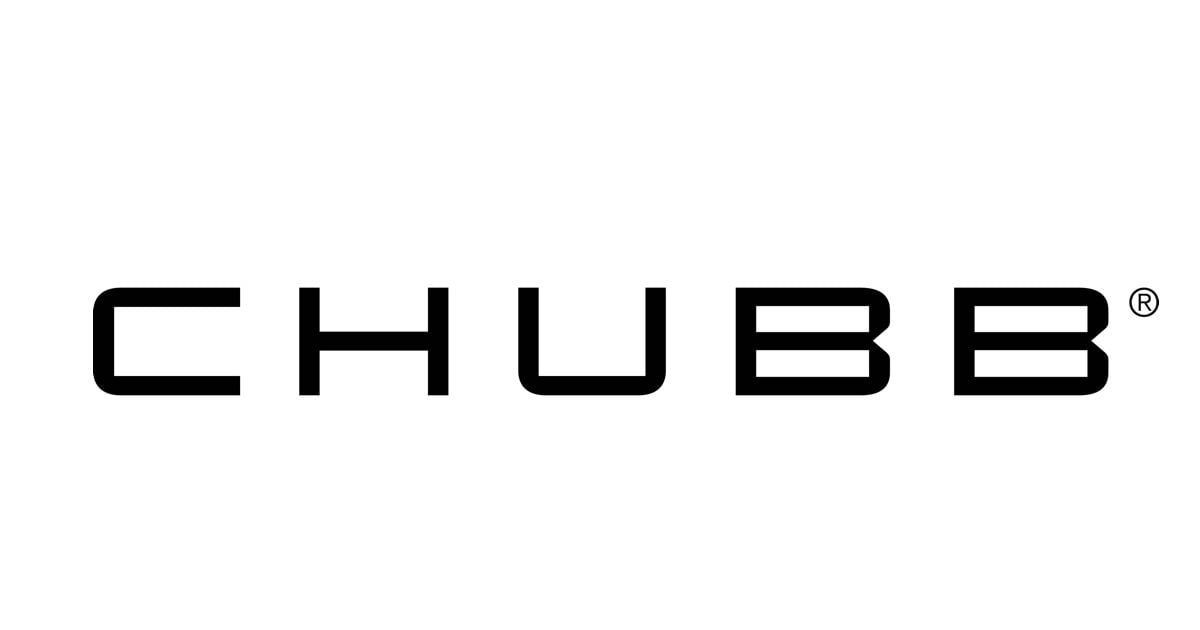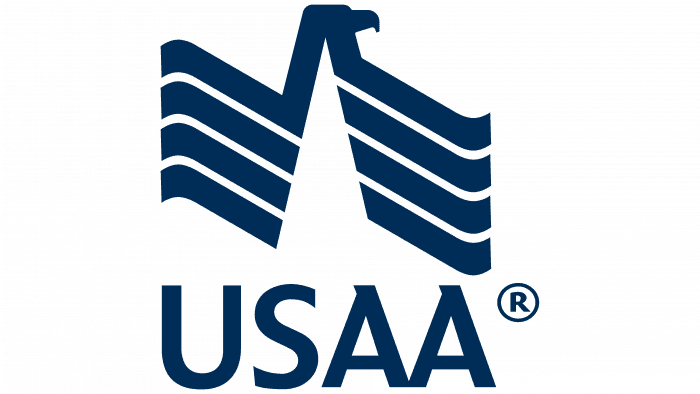Key takeaways
Chubb, USAA and Amica received the highest ratings in our analysis of home insurers in Washington.
State Farm is the cheapest of the best home insurers in Washington, with a star rating of 4.7 and an average annual premium of $1,505.
Chubb, USAA and Amica are the best home insurance companies in Washington, according to our analysis.
To help you find the best home insurance in Washington, we gathered and analyzed data from insurance companies across the state. These are the insurers that earned 4.5 stars or more.
Rates are based on a sample homeowner with no recent claims, $300,000 of dwelling coverage, $300,000 of liability coverage and a $1,000 deductible.
Company | NerdWallet star rating | Average annual rate |
|---|---|---|
Not available | ||
Not available | ||
Not available | ||
$1,505 | ||
$3,140 | ||
$1,600 | ||
Not available | ||
USAA* | $1,625 | |
*USAA membership is open only to active military, veterans, some federal employees and their families. | ||
» MORE: The best homeowners insurance
Get home insurance quotes in minutes
Answer a few questions to see custom quotes and find the right policy for you.The best home insurance companies in Washington
Below are more details about the best homeowners insurance companies in Washington.
Note: Some insurance companies included in this article may have made changes in their underwriting practices and no longer issue new policies in your state.

Chubb
- Far fewer consumer complaints than expected for a company of its size.
- Standard coverage includes features that many companies offer only as extras.
- Perks to help you protect your home.
- Most consumers can't get a quote online and will instead need to contact a local agent.
Chubb caters to affluent homeowners, offering coverage other insurers often charge extra for. For example, the company’s policies include extended replacement cost coverage for the structure of your home. This kind of coverage is useful in case it costs more than your dwelling limit to rebuild after a disaster. Chubb’s standard policies also cover water damage from backed-up sewers and drains.
Policyholders in Washington are eligible for free Wildfire Defense Services. These services include personalized recommendations for protecting your home and firefighters sent to your home if a wildfire is near.
» READ MORE: Chubb homeowners insurance review

Amica
- High customer satisfaction ratings and low consumer complaints.
- Platinum Choice package offers extra coverage.
- Dividend policies can return a portion of your premiums.
- You can start a quote online but may have to finish the buying process by phone.
Amica shines when it comes to its range of coverage options. You can customize your policy with extra coverage above your dwelling limit. You can also add coverage for identity theft or damage from backed-up drains.
The company gets high marks for customer service, too. It draws a very low rate of complaints compared to other insurers, according to the National Association of Insurance Commissioners. Amica also scored well in two recent J.D. Power surveys about home insurance and customer satisfaction.
» READ MORE: Amica homeowners insurance review

Cincinnati Insurance
- Various coverage options.
- Far fewer complaints than expected for a company of its size.
- Coverage available for higher-value homes.
- No online quotes.
- Very little information on website.
If you want to support companies that value sustainability, check out Cincinnati Insurance. In recent years, the insurer has reduced fossil fuel emissions from both its facilities and company vehicles. When you buy Cincinnati home insurance, you may be able to add a “green upgrade” endorsement. With this coverage, you can use eco-friendly materials to repair or rebuild your home after a claim.
The company offers a variety of other options, including comprehensive coverage for high-value homes. You may be able to add coverage for things like personal cyber attacks, identity theft or some types of water damage.
» READ MORE: Cincinnati homeowners insurance review
State Farm
- User-friendly website.
- Agents offer personalized service.
- Policies generally include extra coverage for your home’s structure.
- Below average for claim satisfaction in a recent J.D. Power study.
State Farm stands out for its long list of coverage options, including standard policies that generally include extra dwelling coverage.
You may also be able to add coverage for water damage from backed-up drains or service lines leading to your home. Another option may be to add an inflation guard rider to your policy. This automatically increases your policy limits to keep up with rising costs.
State Farm offers a free Ting smart plug to policyholders as a perk. This plug monitors your home’s electrical network to help prevent fires.
» READ MORE: State Farm homeowners insurance review

Country Financial
- Far fewer complaints than expected for a company of its size.
- Many coverage options available.
- Can get an online quote but must finish the purchase over the phone.
Country Financial has multiple levels of homeowners coverage, which lets you pick coverage that makes sense for you. You can also add extra coverage for the structure of your home and for your belongings.
Country Financial sells homeowners insurance through local representatives. The company receives far fewer complaints than expected for an insurer of its size.
» READ MORE: Country Financial homeowners insurance review
Allstate
- Lots of discounts to help you save.
- Home-sharing coverage available.
- Many ways to customize your coverage.
- Ranked below average for consumer satisfaction in recent J.D. Power studies.
Allstate offers lots of ways to customize your policy, including replacement cost coverage for your personal property and coverage for water damage caused by backed-up drains. Other options may include home-sharing coverage and reimbursement for replacing damaged items with energy-efficient versions.
Allstate stands out for its long list of discounts, including ones for buying a newly constructed home and setting up autopay. You may also qualify for a discount if you bundle home and auto insurance with Allstate.
» READ MORE: Allstate homeowners insurance review

American Family
- Low rate of consumer complaints.
- Free wildfire prevention services in select states.
- Discounts available for qualifying smart-home devices.
- May restrict liability coverage for certain dog breeds.
American Family is notable for offering broader coverage for your home’s structure than many insurers do. If you insure your home up to its replacement cost, American Family will automatically add extended replacement coverage to your policy.
American Family has a long list of extras you can add to your policy. For instance, you can buy coverage in case a major appliance breaks down or an underground utility line needs repairs. Discounts may be available for installing smart-home devices, bundling multiple policies or setting up automatic payments.
» READ MORE: American Family homeowners insurance review

USAA
- Policies include standard coverage that often costs extra elsewhere.
- Far fewer customer complaints to state regulators than expected for a company of its size.
- Available only to active military members, veterans, some federal employees and their families.
USAA sells homeowners insurance to active military members, veterans, some federal employees and their families. If that’s you, you may want to consider USAA.
The company offers perks that are specific to members of the military, like deductible-free coverage for military uniforms and equipment. USAA will also waive your deductible if your personal property is damaged or lost due to war.
USAA’s policies have some features that many insurers charge extra for. For example, USAA covers your personal belongings on a replacement cost basis. That means you’ll get enough money to buy brand-new replacements for damaged items. Many companies pay only what your items are worth at the time of the claim.
» READ MORE: USAA homeowners insurance review
- See all NerdWallet home insurance reviews
How much does homeowners insurance cost in Washington?
The average annual cost of home insurance in Washington is $1,415. That's 33% less than the national average of $2,110.
In most U.S. states, including Washington, many insurers use your credit-based insurance score to help set rates. Your insurance score is similar but not identical to your traditional credit score.
In Washington, those with poor credit pay an average of $1,895 per year for homeowners insurance, according to NerdWallet’s rate analysis. That’s 34% more than those with good credit.
Average cost of homeowners insurance in Washington by city
How much you pay for homeowners insurance in Washington depends on where you live. For instance, the average cost of home insurance in Seattle is $1,365 per year, while homeowners in Yakima pay $1,685 per year, on average.
City | Average annual rate | Average monthly rate |
|---|---|---|
Auburn | $1,425 | $119 |
Bellevue | $1,405 | $117 |
Bellingham | $1,380 | $115 |
Bothell | $1,440 | $120 |
Bremerton | $1,315 | $110 |
Everett | $1,485 | $124 |
Federal Way | $1,440 | $120 |
Kennewick | $1,660 | $138 |
Kent | $1,405 | $117 |
Kirkland | $1,405 | $117 |
Lakewood | $1,485 | $124 |
Lynnwood | $1,405 | $117 |
Marysville | $1,470 | $123 |
Olympia | $1,375 | $115 |
Pasco | $1,595 | $133 |
Port Orchard | $1,310 | $109 |
Puyallup | $1,500 | $125 |
Redmond | $1,370 | $114 |
Renton | $1,435 | $120 |
Seattle | $1,365 | $114 |
Snohomish | $1,510 | $126 |
Spokane | $1,540 | $128 |
Tacoma | $1,495 | $125 |
Vancouver | $1,370 | $114 |
Yakima | $1,685 | $140 |
The cheapest home insurance in Washington
Here are the insurers we found with average annual rates below the Washington average of $1,415.
Company | NerdWallet star rating | Average annual rate |
|---|---|---|
Grange Insurance Association | Not rated | $990 |
CIG | Not rated | $1,080 |
$1,140 | ||
Pemco | Not rated | $1,220 |
$1,370 |
Common risks for Washington homeowners
Here are a few things to keep in mind when shopping for home insurance in Washington.
Earthquakes and landslides
Homeowners insurance doesn’t cover earthquakes or other earth movements like landslides or mudslides, so you may want to look into separate earthquake insurance or an earthquake endorsement.
Earthquake insurance often has a separate deductible, which can be around 10% to 25% of the coverage on your policy. For example, if you have a 20% deductible on $200,000 of coverage, you would need to pay a $40,000 deductible for earthquake damage before your insurance kicks in.
Wildfires
Homeowners insurance will typically cover damage from fires, but review your policy in case of any exceptions. You should also make sure you have enough coverage in case your home is destroyed in a fire. Pay particular attention to your dwelling coverage limit. This is what the insurance company will pay to rebuild your house. If you aren’t sure whether you have enough, talk to your insurer. Learn more about wildfire insurance.
Flooding
Homeowners insurance typically doesn't cover flood damage. As a result, homeowners in at-risk areas may need to purchase separate flood insurance. You can get flood coverage anytime, but be aware that there’s typically a 30-day waiting period before the insurance takes effect. Read more about how to find the best flood insurance.
» MORE: Do you need flood insurance?
To check your flood risk, start by looking up your address on the Federal Emergency Management Agency's flood maps. However, FEMA’s maps don’t always capture all types of flood risk. You may want to check another source, like First Street, a private company that models climate hazards. Enter your address at the top of the page to see your home’s flood risk rating on a scale of 1 to 10.
Winter weather
A standard homeowners policy will cover most winter damage, but it may have exclusions. For instance, damage due to negligence may not be covered. If your pipes freeze and burst because your thermostat was left too low while you were away, the damage may not be covered. As a result, it’s important to take precautions to protect your home.
Washington department of insurance
The Office of the Insurance Commissioner oversees Washington state’s insurance industry and provides helpful resources about insurance. If you’re having an issue with your insurance provider, you can file a complaint using the agency's online form.
The department can also help with your other insurance-related questions by email or by phone at 800-562-6900.
How we rate homeowners insurance
NerdWallet’s star ratings reward companies for consumer-first features and practices. We evaluate factors such as consumer experience, coverage, discounts and financial strength.
In our research, we analyzed:
More than 270 million homeowners insurance rates.
More than 100 insurance companies.
Nearly 200 homeowner profiles.
View our complete homeowners insurance rating methodology.
- Find home insurance in other states
Frequently asked questions
Is homeowners insurance required in Washington?
Is homeowners insurance required in Washington?
Homeowners insurance isn't legally required in Washington state, but your mortgage lender may require you to buy it. For more information, read Is Homeowners Insurance Required?
Does Washington homeowners insurance cover wildfire?
Does Washington homeowners insurance cover wildfire?
Homeowners insurance in Washington covers fires from most causes, including wildfires. Read more about wildfires and insurance.
How can I save money on home insurance in Washington?
How can I save money on home insurance in Washington?
There are several ways to save money on homeowners insurance in Washington:
Shop around to make sure you’re getting the best rate.
Choose a higher deductible. In case of any claims, you’ll pay more out of pocket, but your premiums will be lower.
Bundle your home and auto insurance for a lower overall rate. See the best home and auto insurance bundles.
Ask your insurer if you qualify for any home insurance discounts.
Star rating methodology
NerdWallet’s homeowners insurance ratings reward companies for customer-first features and practices. Ratings are based on weighted averages of scores in several categories, including financial strength, consumer complaints, coverage, discounts, claims process and website functionality. These ratings are a guide, but we encourage you to shop around and compare several insurance quotes to find the best rate for you. NerdWallet does not receive compensation for any reviews or star ratings.
Here’s how we weighted each category to come up with our list of the best home insurance companies:
Consumer experience (40%).
Financial strength (30%).
Coverage (25%).
Discounts (5%).
Read our full home insurance ratings methodology for more details.
Homeowners insurance rates methodology
NerdWallet calculated median rates for 40-year-old homeowners from various insurance companies in the 25 largest cities in each U.S. state by population. All rates are rounded to the nearest $5.
Sample homeowners were nonsmokers with good credit living in a single-family, two-story home built in 1984. They had a $1,000 deductible and the following coverage limits:
$300,000 in dwelling coverage.
$30,000 in other structures coverage.
$150,000 in personal property coverage.
$60,000 in loss of use coverage.
$300,000 in liability coverage.
$1,000 in medical payments coverage.
We made minor changes to the sample policy in cases where rates for the above coverage limits or deductibles weren’t available.
In states where credit is a rating factor, we changed the credit tier from “good” to “poor,” as reported to the insurer, to see rates for homeowners with poor credit.
These are sample rates generated through Quadrant Information Services. Your own rates will be different.
Complaint methodology
NerdWallet examined complaints received by state insurance regulators and reported to the National Association of Insurance Commissioners in 2022-2024. To assess how insurers compare with one another, the NAIC calculates a complaint index each year for each subsidiary, measuring its share of total complaints relative to its size, or share of total premiums in the industry. To evaluate a company’s complaint history, NerdWallet calculated a similar index for each insurer, weighted by market shares of each subsidiary, over the three-year period.
NerdWallet conducts its data analysis and reaches conclusions independently and without the endorsement of the NAIC. Ratios are determined separately for auto, home (including renters and condo) and life insurance.

